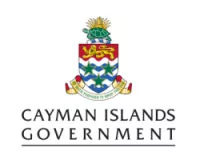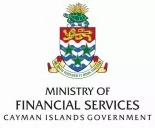- in North America
- in North America
- in North America
- in North America
- with readers working within the Securities & Investment industries
The Cayman Islands commenced new laws on 1 July 2017 that will introduce technology-based system enhancements to its existing beneficial ownership regime, improving the speed in which beneficial ownership information is provided to UK law enforcement authorities with a legitimate right and legitimate reason to have access to, and use, such information.
Through a system that has been in place for more than 15 years, and through a range of legal mechanisms, Cayman already provides beneficial ownership information – which is verified by licensed corporate service providers – to the UK and other countries. The technology-based system enhancements will improve the speed in which that information is provided.
'Financial crime is a serious global problem that requires a unified global response', said Minister of Financial Services, Hon. Tara Rivers. 'As a jurisdiction, the Cayman Islands continues to play a significant role on international regulatory issues and for implementing global practices to fight financial crime; we have been recognised for decades as a strong international partner in combatting corruption, money laundering and tax evasion'.
A three-person team from the UK, representing the Foreign and Commonwealth Office and the National Crime Agency (NCA), visited Cayman on Monday, 26 June and Tuesday, 27 June to discuss Cayman's implementation of the enhanced system with Ministry officials.
'In addition to satisfactorily answering their questions about the enhanced speed with which information will be shared, we briefed the UK team on the system's design, in relation to ensuring that our constitutional matters of privacy and data protection were maintained', the Ministry's Chief Officer Dr Dax Basdeo said.
Government agencies and the financial services industry, Cayman Finance in particular, collaborated to design the technology-based system.
'The Cayman Islands is a premier global financial hub, connecting law-abiding users and providers of investment capital and financing around the world – benefitting both developed and developing countries. We play a critical role in the success of the global financial economy', Cayman Finance CEO Mr Jude Scott said.
'The Cayman Islands Government, the Cayman Islands Monetary Authority, and the private sector have worked continuously over many decades with overseas governments to ensure we are a strong partner in combatting global financial crime', he said. 'Cayman stands ready to collaborate as and when needed'.
The enhanced system provides a secure mechanism for sharing beneficial ownership information on Cayman's exempt, limited liability, and non-resident companies with the UK. By August this year, beneficial ownership information on local, small businesses also will be collected.
As with all of Cayman's international cooperation mechanisms, only competent authorities – the Government agencies and persons that have been given legal authority and power – will be able to exchange beneficial ownership information.
In Cayman, the beneficial ownership competent authority is the Minister of Financial Services, who will delegate authority to the Financial Crimes Unit (FCU), which will receive requests from UK law enforcement; and General Registry, which will hold the beneficial ownership data as the search platform.
Cayman and the UK agreed in April 2016 to improve the exchange of beneficial ownership information, as outlined in a document called the Exchange of Notes and Technical Protocol. All UK Overseas Territories entered into similar agreements.
Since then, Cayman has passed amended legislation; new regulations; and guidance notes for industry, in order to provide the legal framework upon which the system was enhanced.
Sidebar: What Is a 'Beneficial Owner'?
According to the Financial Action Task Force, 'beneficial owner' refers to the natural person(s) who ultimately owns or controls a customer and/or the natural person on whose behalf a transaction is being conducted. It also includes those persons who exercise ultimate effective control over a legal person or arrangement.
The content of this article is intended to provide a general guide to the subject matter. Specialist advice should be sought about your specific circumstances.


